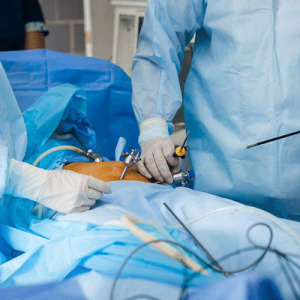#best gastroenterologist in kharghar navi mumbai
Explore tagged Tumblr posts
Text
Dr. Khilchand Bhangale: Pioneering Gastroenterology Expert in Kharghar, Navi Mumbai

When it comes to safeguarding your digestive well-being, the choice of a specialist is pivotal. Amidst the bustling city of Navi Mumbai, and specifically in the thriving enclave of Kharghar, one name shines brightly as the paragon of proficiency and empathy in the realm of gastroenterology – Dr. Khilchand Bhangale.
The Dr. Khilchand Bhangale Difference
With a career devoted to the study and practice of gastroenterology, Dr. Bhangale has risen as the foremost choice for those in search of superlative care for their digestive health concerns. His profound knowledge, complemented by years of hands-on experience, renders him the optimal solution for all your gastroenterological requirements.
Unparalleled Proficiency in Gastroenterology
Dr. Khilchand Bhangale's proficiency extends across a broad spectrum of digestive disorders, encompassing but not limited to:
Gastroesophageal reflux disease (GERD) Inflammatory bowel diseases (IBD) Irritable bowel syndrome (IBS) Liver ailments Pancreatic conditions Gallbladder problems Endoscopic and colonoscopic procedures He seamlessly amalgamates the most recent medical advancements with an unwavering patient-centric approach, ensuring that each patient receives the most thorough and personalized care available.
Compassionate Care
Beyond being a distinguished gastroenterologist, Dr. Bhangale is a compassionate and empathetic healthcare practitioner. He recognizes the profound impact that digestive concerns can have on one's quality of life. Hence, he invests the time to attentively listen to his patients, affording them the indispensable support and guidance required on their healthcare journey.
Cutting-Edge Facilities
Dr. Bhangale's clinic in Kharghar is outfitted with cutting-edge facilities, assuring that patients benefit from the highest caliber of care. From precise diagnostics to advanced treatment options, his clinic serves as a comprehensive hub for all your gastroenterological necessities.
Should you find yourself in Kharghar, Navi Mumbai, in pursuit of the finest gastroenterologist in the region, Dr. Khilchand Bhangale stands as your foremost choice. With his profound expertise, empathetic care, and avant-garde facilities, you can entrust your digestive health to his capable hands. Refuse to allow digestive issues to disrupt your life; arrange a consultation with Dr. Bhangale, and embark on the initial stride towards a healthier, more contented you.
Contact Us :
Name : Dr. Khilchand Bhangale
Address: Second Floor Plot no 47, Millennium Empire Near, D-Mart Road Sector 15, Kharghar, Maharashtra, India
Phone: 8356833857
0 notes
Text


Seeking Top-Tier Medical Care in Kharghar? Alpha One Hospital Has You Covered
Finding a reliable and comprehensive healthcare facility can be a challenge. If you're situated in Kharghar, Navi Mumbai, your search for excellence ends at Alpha One Multispeciality Hospital In Kharghar. We're a leading provider of medical and surgical services, committed to patient well-being and exceptional outcomes.
Here's a glimpse into what sets Alpha One Hospital apart:
Multispeciality Expertise: We house a team of highly qualified doctors across various disciplines, ensuring you receive the right care under one roof. From dermatology and gastroenterology to bariatric surgery, we cater to a wide range of medical needs.
Laparoscopic Surgery Center of Excellence: Our Centre for Minimally Invasive Laparoscopic Surgery is a frontrunner in the region. We employ advanced laparoscopic and laser techniques, allowing for faster recovery times, reduced pain, and minimal scarring.
Gastrointestinal Care: We consistently rank among the most sought-after centers for gastrointestinal issues and complex laparoscopic surgeries. Our team leverages cutting-edge technology to ensure the best possible treatment for your digestive health.
Bariatric Surgery: If you're struggling with obesity, our bariatric surgery program offers comprehensive guidance and support. We provide various weight-loss procedures to help you achieve a healthier lifestyle.
Dermatological Solutions: Our dedicated dermatologists diagnose and treat a comprehensive spectrum of skin, hair, and nail concerns. We utilize advanced techniques to address your unique needs.
Unwavering Patient Care: At Alpha One Hospital, we prioritize your well-being above all else. Our staff is dedicated to providing compassionate and personalized care, ensuring you feel comfortable and informed throughout your treatment journey.
Why Choose Alpha One Hospital ?
State-of-the-Art Facilities: We invested in cutting-edge technology to deliver the most advanced medical care.
Patient-Centric Approach: Your needs and comfort are our top priorities. We provide clear communication and ensure you're actively involved in your treatment plan.
Exceptional Team: Our team of highly skilled doctors and supportive staff is passionate about delivering exceptional care.
Ready to Take Charge of Your Health?
Alpha One Hospital is your one-stop destination for multispeciality healthcare in Kharghar. Contact us today to schedule an appointment or learn more about our services. We're here to help you achieve optimal health and wellness.
https://alphaonehospital.com/
#AlphaOneHospital #Kharghar #LaparoscopicSurgery #GastrointestinalSurgeon #BariatricSurgery #Dermatologist #Gastroenterologist #HealthcareKharghar #MedicalServices #ExpertCare
#AlphaOneHospital#Kharghar#LaparoscopicSurgery#GastrointestinalSurgeon#BariatricSurgery#Dermatologist#Gastroenterologist#HealthcareKharghar#MedicalServices#ExpertCare
0 notes
Text
Mitr Hospital Kharghar and Dr. Nandita Dubey
Mitr Hospital Kharghar is known for housing experienced General Surgeons. Dr. Vijay Kumar Malladi, a well-reputed General Surgeon, practices in Navi Mumbai. Visit this medical health centre for General Surgeons recommended by 109 patients.
Established in 2014, Mitr Hospitals is a 100 bedded Multi Specialty Hospital divided into single, double and general ward. categories, situated in Noida (U.P.).The hospital has a highly qualified and trained doctors, nurses, admin staff and best-in class. professional expertise that ensures you avail the latest in medicine & surgery. It provides a broad range of in-patient and outpatient health care services to match the needs of both domestic and overseas patient. There are Surgical and Medical ICUs, Neonatal ICU, radical Labour suites and LDR beds, three modular high tech Operation. Theatres and a dedicated area for Central Sterile Supply unit. These facilities make it the best Private Hospital in Noida. providing 360 degree medical facilities under one roof.
Dr. Nandita Dubey Gynecologist has done her residency training at Lokmanya Tilak Medical College located in Mumbai. It is one of the reputed medical colleges in state of Maharashtra with an Enormous workload from where she has learnt her skills as a gynaecologist.
After three years of residency she got the opportunity to work with Dr. C.N.Purandare in Grant Medical College located in Mumbai which also is her college of undergraduation. Dr.Nandita Dubey was invited to an underprivileged country in Carribeans called Guyana to establish Gynaecology center catering to population of 4 million. This experience and confidence brought her back to India to specialize in Gynaecologic endoscopy at BEAMS–Bombay Endoscopy Academy and Minimally Invasive Surgery which is the leading Endo-gynae centre in Mumbai. At BEAMS Dr. Nandita Dubey received training in Endogynaecology from a nationally recognized advanced Endo-gynae surgeon Dr. Rakesh Sinha.
An upper endoscopy is a procedure used to visually examine your upper digestive system with a tiny camera on the end of a long, flexible tube. A specialist in diseases of the digestive system (gastroenterologist) uses an endoscopy to diagnose and, sometimes, treat conditions that affect the esophagus, stomach and beginning of the small intestine (duodenum).
The medical term for an upper endoscopy is esophago-gastroduodenoscopy. You may have an upper endoscopy done in your doctor's office, an outpatient surgery center or a hospital.
Why it's done
Gastrointestinal tract
An upper endoscopy is used to diagnose and, sometimes, treat conditions that affect the upper part of your digestive system, including the esophagus, stomach and beginning of the small intestine (duodenum).
Your doctor may recommend an endoscopy procedure to:
Investigate symptoms. An endoscopy may help your doctor determine what's causing digestive signs and symptoms, such as nausea, vomiting, abdominal pain, difficulty swallowing and gastrointestinal bleeding.
Diagnose. Your doctor may use an endoscopy to collect tissue samples (biopsy) to test for diseases and conditions, such as anemia, bleeding, inflammation, diarrhea or cancers of the digestive system.
Treat. Your doctor can pass special tools through the endoscope to treat problems in your digestive system, such as burning a bleeding vessel to stop bleeding, widening a narrow esophagus, clipping off a polyp or removing a foreign object.
An endoscopy is sometimes combined with other procedures, such as an ultrasound. An ultrasound probe may be attached to the endoscope to create specialized images of the wall of your esophagus or stomach. An endoscopic ultrasound may also help your doctor create images of hard-to-reach organs, such as your pancreas. Newer endoscopes use high-definition video to provide clearer images.
Many endoscopes allow your doctor to use technology called narrow band imaging, which uses special light to help better detect precancerous conditions, such as Barrett's esophagus.
Risks
An endoscopy is a very safe procedure. Rare complications include:
Bleeding. Your risk of bleeding complications after an endoscopy is increased if the procedure involves removing a piece of tissue for testing (biopsy) or treating a digestive system problem. In rare cases, such bleeding may require a blood transfusion.
Infection. Most endoscopies consist of an examination and biopsy, and risk of infection is low. The risk of infection increases when additional procedures are performed as part of your endoscopy. Most infections are minor and can be treated with antibiotics. Your doctor may give you preventive antibiotics before your procedure if you are at higher risk of infection.
Tearing of the gastrointestinal tract. A tear in your esophagus or another part of your upper digestive tract may require hospitalization, and sometimes surgery to repair it. The risk of this complication is very low — it occurs in an estimated 1 of every 2,500 to 11,000 diagnostic upper endoscopies. The risk increases if additional procedures, such as dilation to widen your esophagus, are performed.
You can reduce your risk of complications by carefully following your doctor's instructions for preparing for an endoscopy, such as fasting and stopping certain medications.
Signs and symptoms to watch for after your endoscopy include:
Fever
Chest pain
Shortness of breath
Bloody, black or very dark colored stool
Difficulty swallowing
Severe or persistent abdominal pain
Vomiting, especially if your vomit is bloody or looks like coffee grounds
Call your doctor immediately or go to an emergency room if you experience any of these signs or symptoms.
How you prepare
Your doctor will give you specific instructions to prepare for your endoscopy. In some cases your doctor may ask that you:
Fast before the endoscopy. You will need to stop drinking and eating four to eight hours before your endoscopy to ensure your stomach is empty for the procedure.
Stop taking certain medications. You will need to stop taking certain blood-thinning medications in the days before your endoscopy. Blood thinners may increase your risk of bleeding if certain procedures are performed during the endoscopy. If you have chronic conditions, such as diabetes, heart disease or high blood pressure, your doctor will give you specific instructions regarding your medications.
Tell your doctor about all the medications and supplements you're taking before your endoscopy.
Most people undergoing an upper endoscopy will receive a sedative to relax them and make them more comfortable during the procedure. Plan ahead for your recovery while the sedative wears off. You may feel mentally alert, but your memory, reaction times and judgment may be impaired. Find someone to drive you home. You may also need to take the day off from work. Don't make any important personal or financial decisions for 24 hours.
What you can expect
During an upper endoscopy procedure, you'll be asked to lie down on a table on your back or on your side. As the procedure gets underway:
Monitors often will be attached to your body. This will allow your health care team to monitor your breathing, blood pressure and heart rate.
You may receive a sedative medication. This medication, given through a vein in your forearm, helps you relax during the endoscopy.
Your doctor may spray an anesthetic in your mouth. This medication will numb your throat in preparation for insertion of the long, flexible tube (endoscope). You may be asked to wear a plastic mouth guard to hold your mouth open.
Then the endoscope is inserted in your mouth. Your doctor may ask you to swallow as the scope passes down your throat. You may feel some pressure in your throat, but you shouldn't feel pain.
You can't talk after the endoscope passes down your throat, though you can make noises. The endoscope doesn't interfere with your breathing.
As your doctor passes the endoscope down your esophagus:
A tiny camera at the tip transmits images to a video monitor in the exam room. Your doctor watches this monitor to look for abnormalities in your upper digestive tract. If abnormalities are found in your digestive tract, your doctor may record images for later examination.
Gentle air pressure may be fed into your esophagus to inflate your digestive tract. This allows the endoscope to move freely. And it allows your doctor to more easily examine the folds of your digestive tract. You may feel pressure or fullness from the added air.
Your doctor will pass special surgical tools through the endoscope to collect a tissue sample or remove a polyp. Your doctor watches the video monitor to guide the tools.
When your doctor has finished the exam, the endoscope is slowly retracted through your mouth. An endoscopy typically takes 15 to 30 minutes, depending on your situation.
You'll be taken to a recovery area to sit or lie quietly after your endoscopy. You may stay for an hour or so. This allows your health care team to monitor you as the sedative begins to wear off.
Once you're at home, you may experience some mildly uncomfortable signs and symptoms after endoscopy, such as:
Bloating and gas
Cramping
Sore throat
These signs and symptoms will improve with time. If you're concerned or quite uncomfortable, call your doctor.
Take it easy for the rest of the day after your endoscopy. After receiving a sedative, you may feel alert, but your reaction times are affected and judgment is delayed.
Results
When you receive the results of your endoscopy will depend on your situation. If, for instance, your doctor performed the endoscopy to look for an ulcer, you may learn the findings right after your procedure. If he or she collected a tissue sample (biopsy), you may need to wait a few days to get results from the testing laboratory. Ask your doctor when you can expect the results of your endoscopy.
Further training was with Dr. Neeta Warty who is specialist in pelvic floor reconstruction and onco-gynaecology. Dr. Nandita Dubey is fellowship trained in Minimally Invasive Endogynecologic surgery under Dr.Mettler from the Keil University School in Germany. A short stint at Royal Free Hospital London in minimally invasive training centre with Dr. Adam Maggos was a good learning experience.
For More Information You Can Contact Us
Block 30, East Patel Nagar, Rajendra Place, New Delhi, Delhi 110008 +(91)-7899912611
https://www.elawoman.com/
Contact Form
Ela Facebook Ela Twitter Ela Instagram Ela Linkedin Ela Youtube
0 notes